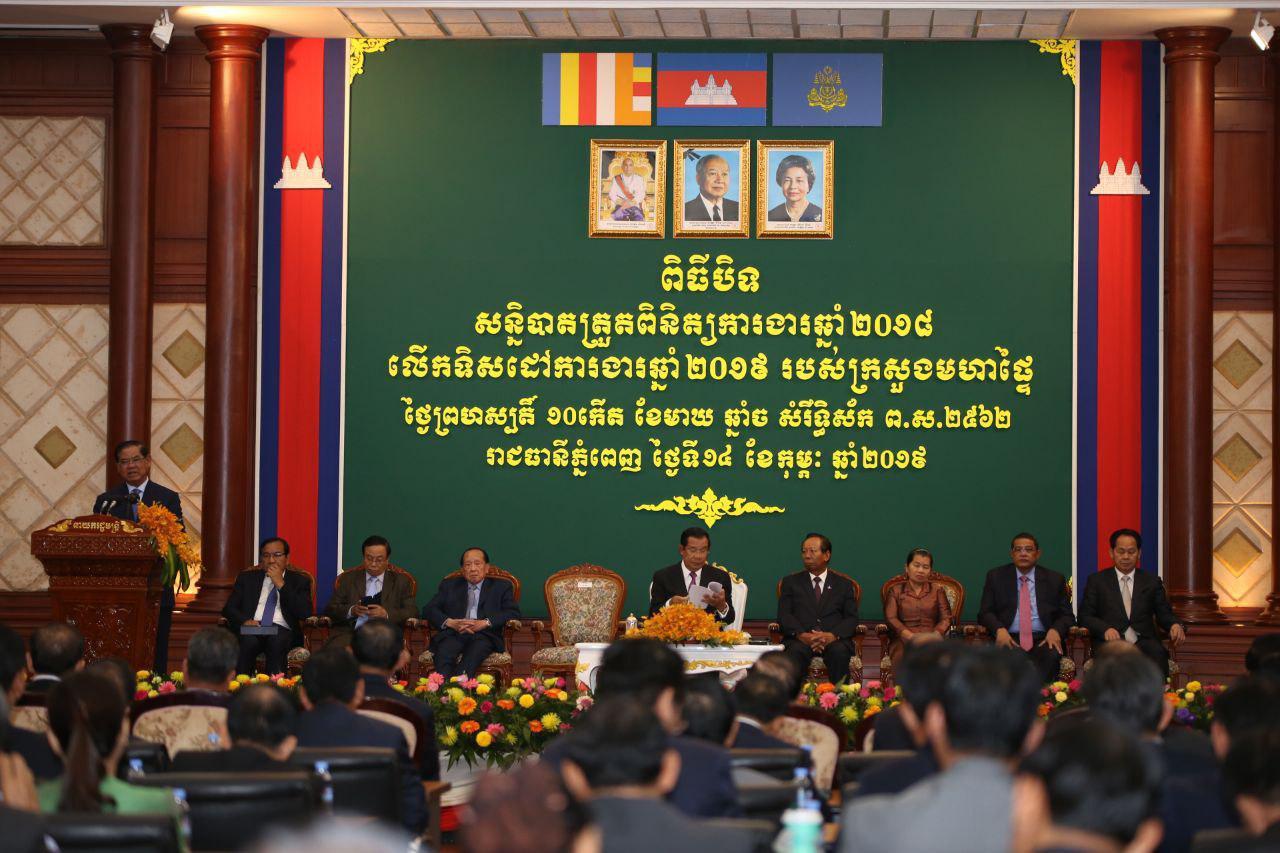Phnom Penh (FN), Feb. 15 - Minister of Interior Sar Kheng urged officials in the drug unit to study the effects of marijuana, while other countries like the Canada, Uruguay, US, and Thailand already legalized for medical purposes.
“As far as I know, at least three countries have legalized marijuana under the government’s control. We need to know why they legalized such drug?” said Minister Sar Kheng at the annual meeting of the ministry of interior on Thursday.
Marijuana also goes by the name cannabis, pot, weed, or one of dozens more colourful, also-popular variants, including, but not limited to, ganja, dope, cheeba, 420, and the sticky icky. The reason the plant has so many nicknames, according to David Bienenstock, author of How to Smoke Pot (Properly): A Highbrow Guide to Getting High and former editor of the cannabis magazine High Times, is because it's been illegal for so long.
"Any underground culture develops a coded language," said Bienenstock, allowing people to talk about their activities without getting caught.
The legality of marijuana for medical and recreational use varies by country, in terms of its possession, distribution, and cultivation, and (in regards to medical) how it can be consumed and what medical conditions it can be used for, according to Ottawa Review, Legalizing Cannabis Violates the UN Drug Control Treaties, But Progressive Countries Like Canada Have Options, published in March 2018.
The use of marijuana for recreational purposes is prohibited in most countries; however, many have adopted a policy of decriminalization to make simple possession a non-criminal offense (often similar to a minor traffic violation). Others have much more severe penalties such as some Asian and Middle Eastern countries where possession of even small amounts is punished by imprisonment for several years, the review continued.
Uruguay and Canada are the only sovereign states that have fully legalized the consumption and sale of recreational cannabis nationwide. In the United States, ten states and the District of Columbia have legalized sales and consumption although it remains federally illegal; while Thailand legalized medical marijuana it added.
Thailand has approved the use of marijuana for medicinal use. Possession of larger quantities and trafficking of the plants still carries a death sentence nationally and in bordering countries throughout the region, according to Forbes.
It is forbidden to use Marijuana across much of South East Asia, which has some of the world’s harshest punishments for drug law violations outside of the Kingdom of Saudi Arabia. As in KSA, trafficking narcotics in Thailand is also punishable by death. Marijuana traffickers can be subject to the death penalty in Singapore, Indonesia, and Malaysia as well. However, bordering country, Malaysia is currently contemplating medical marijuana legalization, according to the above source.
Cambodia considered marijuana an illegal crop, and a type of drug that must be confiscated and destroyed.
=FRESH NEWS
